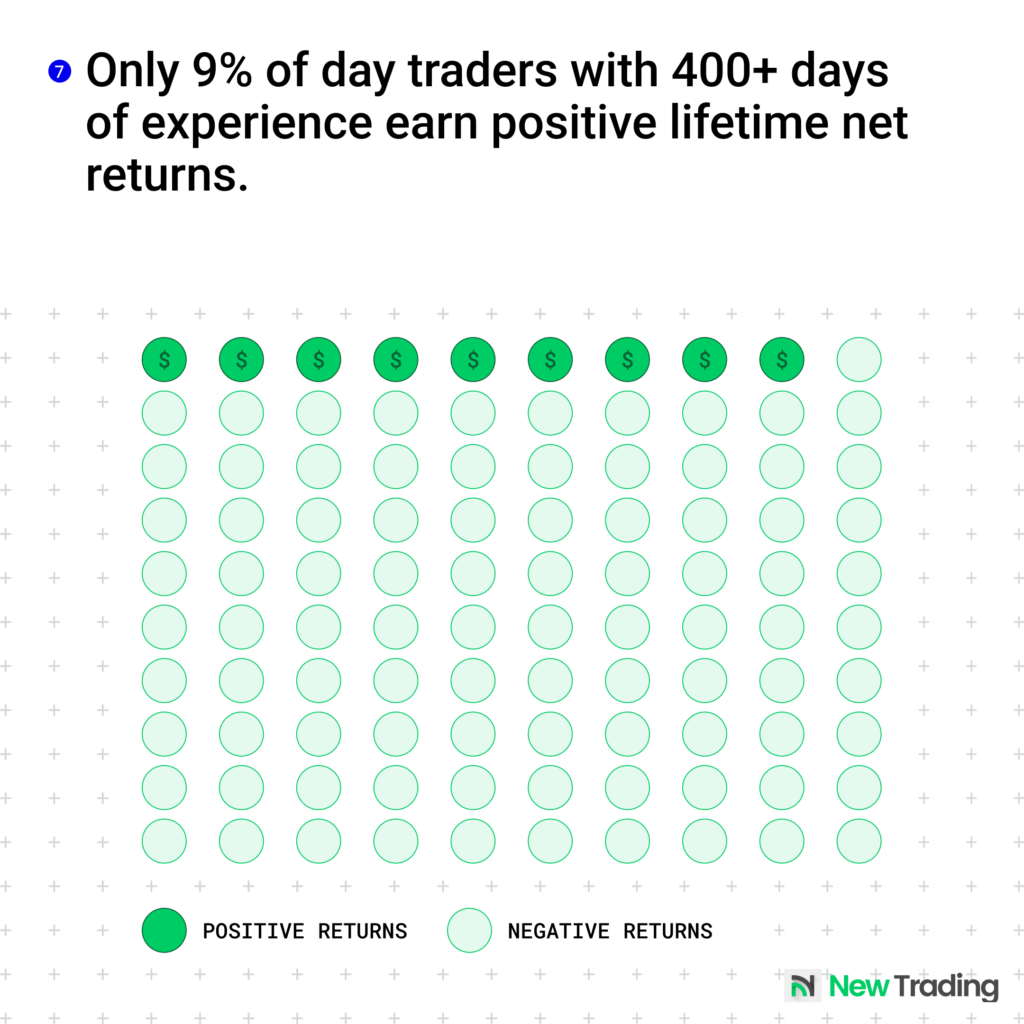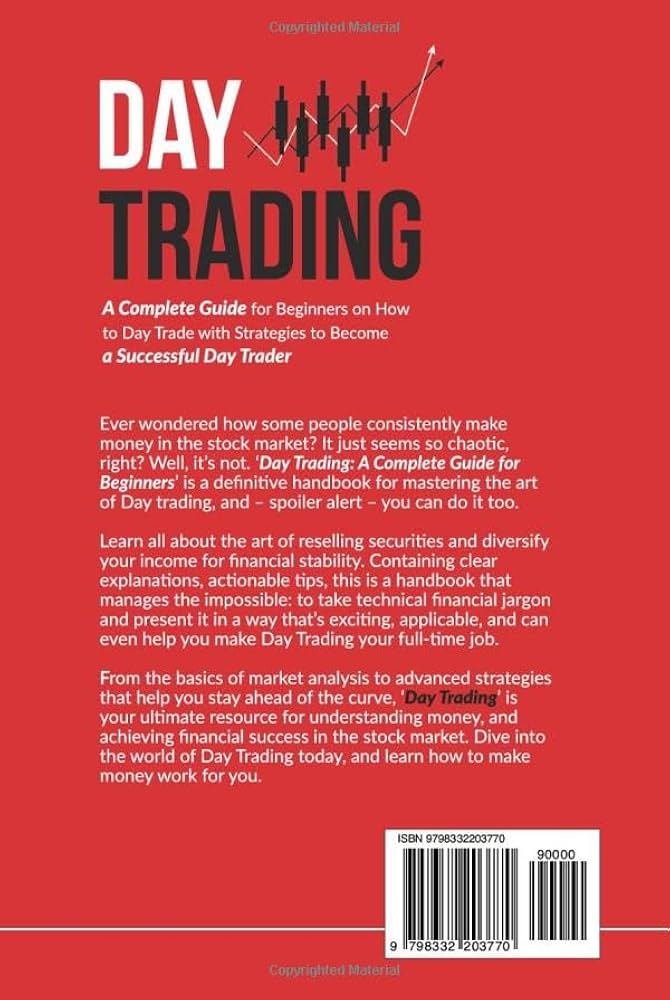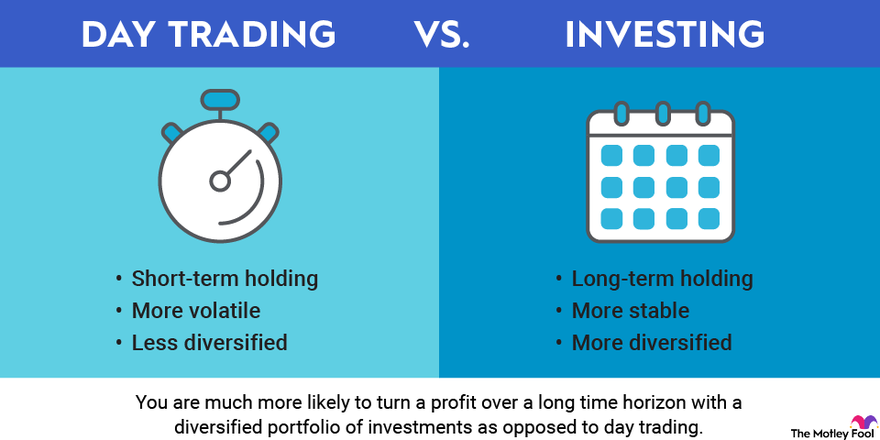Did you know that some people believe day trading is just a game of luck? Spoiler alert: it’s not! In this article, we tackle common day trading myths that can mislead both beginners and seasoned traders. We'll clarify how day trading differs from long-term investing, discuss the risks involved, and explore whether anyone can succeed without a hefty starting capital. Additionally, we’ll examine the time commitment required, the effectiveness of various strategies, and the emotional factors that can impact performance. With insights from DayTradingBusiness, you'll gain a clearer understanding of what it truly takes to navigate the world of day trading effectively.
What are the most common day trading myths?
1. Myth: Day trading guarantees quick profits. Reality: Many day traders lose money, and success often takes time and experience.
2. Myth: You need a lot of money to start. Reality: You can start day trading with a small account, though it may limit your options.
3. Myth: Day trading is easy and requires no skill. Reality: It demands significant knowledge, strategy, and discipline.
4. Myth: You can rely solely on tips and advice. Reality: Successful trading requires research and analysis, not just following others.
5. Myth: Day trading works in any market condition. Reality: Market volatility and trends affect day trading success; not all conditions are favorable.
6. Myth: You need to watch the market all day. Reality: Effective strategies can focus on specific times or setups, allowing for breaks.
7. Myth: All brokers provide the same services. Reality: Brokers vary in fees, tools, and support, which can impact your trading success.
How does day trading differ from long-term investing?
Day trading involves buying and selling stocks within the same day, aiming to profit from short-term price fluctuations. In contrast, long-term investing focuses on holding assets for years, seeking to benefit from overall growth and compounding returns. Day traders rely on technical analysis and market trends, while long-term investors prioritize company fundamentals and economic indicators. Essentially, day trading is about quick gains, whereas long-term investing is about sustained growth over time.
Can anyone become a successful day trader?
Yes, anyone can become a successful day trader, but it requires dedication, education, and practice. Many myths suggest that only experts or those with large capital can succeed, but that’s not true. Success in day trading comes from developing a solid strategy, managing risks effectively, and continuously learning from both wins and losses. With the right mindset and commitment, individuals from various backgrounds can thrive in day trading.
Is day trading really a guaranteed way to make money?
No, day trading is not a guaranteed way to make money. Many traders lose significant amounts due to market volatility and emotional decision-making. Success requires skill, discipline, and a solid strategy, but even then, risks are high. It's important to understand that consistent profits are rare and not all traders succeed.
What risks are associated with day trading?
Day trading carries several risks, including significant financial loss due to market volatility, emotional stress from rapid decision-making, and the potential for overtrading, which can lead to increased fees and losses. Additionally, lack of proper knowledge can result in poor strategies and execution, while reliance on technical analysis may not always predict market movements accurately. Finally, traders may face regulatory scrutiny or issues with margin accounts, amplifying their risk exposure.
Do you need a lot of money to start day trading?
No, you don’t need a lot of money to start day trading. Many brokers allow you to open accounts with as little as $500 to $1,000. However, having more capital can help manage risk and increase potential profits. Start with what you can afford to lose, and focus on learning the strategies and market dynamics.
Is day trading only for experienced traders?

No, day trading is not only for experienced traders. While experience can help, beginners can also succeed with proper education, discipline, and risk management. Many resources are available for novices to learn strategies and market analysis. However, it's essential to understand the risks involved and to start with a solid plan.
What are Common Myths About Day Trading?
Day trading is the practice of buying and selling financial instruments within the same trading day, aiming to profit from short-term price movements.
Learn more about: What is Day Trading?
How much time do day traders spend each day?
Day traders typically spend 6 to 10 hours each day actively trading and monitoring the markets. This includes researching stocks, analyzing charts, and executing trades. Some may even spend more time, especially during volatile market conditions.
Can you day trade part-time and still be successful?

Yes, you can day trade part-time and still be successful. Many traders manage to profit by dedicating focused hours to trading while maintaining other jobs or commitments. Success depends on effective time management, solid strategies, and discipline. Prioritize key market hours and use tools like alerts and automation to optimize your trading. Consistency and learning from each trade are crucial, regardless of the time you invest.
Are day trading strategies effective for everyone?
No, day trading strategies are not effective for everyone. They require significant time, skill, and discipline. Many traders face high risks, emotional stress, and potential losses. Success depends on individual experience, market understanding, and risk tolerance. What works for one person may not work for another.
Learn about Effective Day Trading Strategies for Short-Term Success
Is it true that day trading is illegal or regulated?
Day trading is not illegal; it is regulated. Traders must adhere to specific rules set by regulatory bodies like the SEC and FINRA. For example, the Pattern Day Trader rule requires traders with less than $25,000 in their account to limit their trades. Overall, while day trading is legal, it comes with regulations to promote fair trading practices.
Do day traders rely solely on technical analysis?
No, day traders do not rely solely on technical analysis. While many use charts and indicators to make quick decisions, they also consider market news, economic data, and sentiment. Successful day trading often involves a mix of technical and fundamental analysis to navigate the market effectively.
Can you lose more money than you invest in day trading?

Yes, you can lose more money than you invest in day trading. This often happens when using margin or leverage, which allows you to trade with borrowed funds. If trades go against you, losses can exceed your initial investment, leading to significant financial risk.
Are there any tax implications for day trading?
Yes, there are tax implications for day trading. Profits from day trading are typically considered short-term capital gains, taxed at your ordinary income tax rate. Additionally, you may be subject to the wash sale rule, which can affect your ability to claim losses. It’s important to keep detailed records of all trades for accurate reporting on your taxes.
What tools and resources do day traders need?
Day traders need several key tools and resources, including:
1. Trading Platform: A reliable platform like TD Ameritrade, E*TRADE, or Interactive Brokers for executing trades.
2. Charting Software: Tools like TradingView or Thinkorswim for technical analysis and charting.
3. News Feed: Real-time news services like Benzinga or Bloomberg to stay updated on market-moving events.
4. Stock Screener: Tools like Finviz or Trade Ideas to identify potential trades based on specific criteria.
5. Brokerage Account: A brokerage with low commissions and fast execution.
6. Risk Management Tools: Stop-loss orders and position sizing calculators to manage risk effectively.
7. Educational Resources: Courses, webinars, or books focused on day trading strategies and market analysis.
Having these resources helps day traders make informed decisions and execute trades efficiently.
How do emotions affect day trading performance?
Emotions significantly impact day trading performance by influencing decision-making. Fear can lead to missed opportunities or premature selling, while greed may cause overtrading or holding onto losing positions. Stress from market volatility can cloud judgment, resulting in impulsive trades. Managing emotions through discipline and a clear trading plan is crucial for consistent success in day trading.
Conclusion about Day Trading Myths Debunked
In summary, understanding the realities of day trading is crucial for anyone considering this approach to investing. By debunking common myths and recognizing the risks involved, aspiring traders can make informed decisions. Success in day trading is attainable, but it requires preparation, discipline, and the right resources. For those looking to deepen their knowledge and navigate the complexities of this dynamic market, DayTradingBusiness offers valuable insights and support.